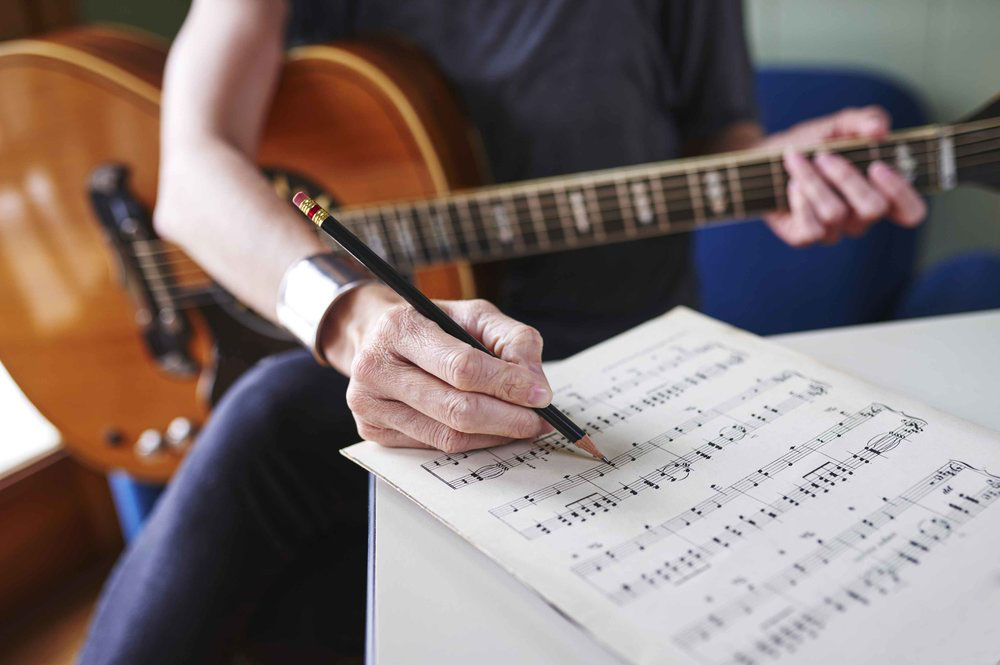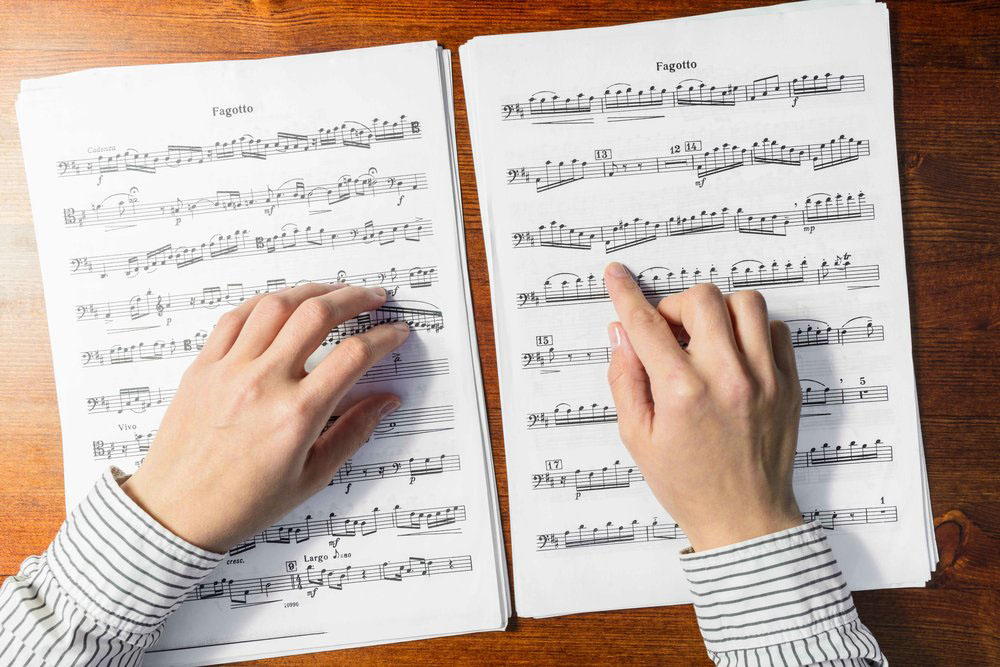2 Min Read
14 TIPS TO IMPROVE YOUR PRACTICE ROUTINE
If you’re a musician, you’ve undoubtedly spent hundreds, thousands, or tens of thousands of hours perfecting your craft. Practising and growing musically is a lifelong journey, and the day-to-day routines are full of highs and lows (no pun intended). Your time is valuable; are you making the most out of your practice time? Follow these 14 tips to make sure you are making the most out of your daily routines.
1. Set clear goals
Ever sit down to practise, pull out some books or charts, and begin to noodle and read aimlessly? It might be fun, but how well is your time being used? Every day, set clear goals for what you want to accomplish and how much time you want to practice. Create a plan for exactly what you will work on in that session. If you have solid long-term goals in mind, break them down into smaller chunks and create monthly, weekly, and daily goals for yourself. For example, if you have a piece you’d like to perform in 6 months that contains impossibly fast articulations, work backwards from the goal. Start practising it at half tempo today, and don’t move up your metronome until it’s sounding clean, clear, and consistent. Set a goal for a new tempo next week, and another for the week after. Approaching your practice session with clear goals and outcomes will help you practice more efficiently, accomplish more, and motivate you to return to the practice room every day.
2. Warm up
Make sure you give yourself a nice, long, level-appropriate warm-up. As a trumpet player, I cannot stress how many times I’ve watched trumpeters start their “warm-up” by squealing and clenching out their highest notes with a hefty big-band-lead-style shake. Be efficient and careful with your warm-up. If you’re not sure how to warm up, speak with your teacher or a colleague for appropriate exercises. Here are a few general guidelines that can help all musicians:
- Start comfortably. The point of a warm-up is to gently ease yourself into playing and to literally warm up your body and your instrument for music making. Don’t start with any extremes: extreme range, extreme loudness, or extreme speed are all no-nos.
- Grow from your comfort zone into your full capacity. This includes your range, various volumes, articulations, and speeds.
- Incorporate non-instrument warm-ups. Many musicians do some sort of breathing exercise, stretching, or singing (for non-vocalists) during their warm-ups.
Again, speak with your teacher or another specialist on your instrument for help crafting your perfect warm-up. If you know how to warm up and you’re skipping it due to laziness, please reconsider that decision! Warming up can feel tedious at times, but it’s an incredibly essential way to set and build your fundamentals daily.
3. Eliminate Distractions
Resist the urge to check your texts in between exercises! If you are easily distracted by your technology, turn it off. Hide your phone in your backpack or instrument case and make a bet with yourself that you won’t look at it until you take a water break. Leave the room when you use your phone. Create phone-free vibes in your practice room so your temptations wane over time. If you are practising in a school where you are distracted often by friends walking by, or if you are nervous about who might hear you, create privacy for yourself by covering your window with a scarf or a piece of paper. If you often fall for these common distractions, you’ll be amazed at how much time you save once they are eliminated.
4. Record yourself
Here’s an exception to the put-your-phone-away rule: record yourself playing with whatever device you have available. Recording yourself is helpful in every scenario. You don’t have to be preparing for a big performance or audition to record and analyze your playing; you can record daily! Record yourself practising routine exercises and you might be surprised with what you hear. If you’re not hearing any obvious flaws, slow down your recording to 75% or 50% speed to hear more details about the accuracy of your diction, articulation, breathing, timing, etc. This can be one of the most humbling (and frustrating) exercises to practice, but it will help you grow faster than anything else. If you aren’t aware of your flaws, you won’t know how to change course to correct them.
If you have a performance or audition coming up, we recommend videotaping yourself both for audio analysis and to observe your stage presence and posture.
5. Use a pencil
For everything! Write in your music, and often. Don’t wait until you’ve made a mistake twice to write reminders or corrections. The more you practice something incorrectly, the longer it will take for you to unlearn the mistake and relearn the correct way.
6. Listen more
Besides listening to your practice recordings, take breaks to listen to professional recordings of the very best artists performing your instrument or your music. It’s always healthy and productive to get the “goal” sound back into your head after and during practising. Listen to music that represents the way you want to sound. The more you can reference back to these recordings, the more on-track your practice sessions will be.
7. Sing
If you are not a vocalist, take breaks to sing your music. Can’t sing? Hum it. You don’t have to sound great or have a good range, but you should be able to generally match the pitch of the notes in your music. If you can’t sing your music, go back to your instrument and try playing it more slowly. Don’t speed up until the music is ingrained in your head to the point where you can sing it to yourself. Sometimes with fast passages, it can be tempting to power through the notes with impressive fingering patterns and arpeggios – but make sure that you can identify and hear every single note without your instrument before speeding up to virtuosic tempos. If you need a moment away from your instrument, singing can be a great way to take a break while still working on your musicianship.
8. Take Breaks
Speaking of breaks, it’s super healthy to take an occasional pause in your practice routine! Spending hours in the practice room can be taxing, both mentally and physically. Make sure to take breaks occasionally: get out of your practice room, go for a walk, get a snack, have some water, sing, or check your texts (finally, phew). Please don’t see breaks as lazy or unproductive. Taking a few minutes away from your intense focus and letting your mind and body relax is so good for your productivity.
9. Sight Read
If you need a break from the same old exercises, take 20 minutes to sight read during your practice session. Sight reading is essential for your development as a musician, and it’s fun! Grab a friend and sight read some duets together. Sight reading with a friend can push you to be accountable, not give up, and work even harder than you might if you sight read alone. I find that when I sight read, I am focused so deeply in the reading that I stop over-analysing everything else like my breathing, my tonguing, or my posture. All of those things seem to fix themselves when I am intensely focused on just creating music. Sight reading offers a refreshing break from your practice session.
10. Use Multiple Approaches
Depending on your experience with various teachers, you probably have a variety of tools and problem-solving skills that you can use to tackle troubling issues while you practice. Be sure to always try new ways to tackle new problems. For example, if you’ve learned to use slow repetition as a way to conquer fast passages, you may find that the same approach does not fix a problem such as breath control or seamlessly jumping octaves in a melodic passage. Approach your own practising as if you were teaching a young student. Would you suggest the same approach to all of their issues? Definitely not. And what would you do if they presented a problem that you didn’t how to fix? You probably wouldn’t tell them to just keep repeating themselves until it gets better. And you definitely wouldn’t just shrug and give up on them. You’d most likely experiment, try some new things, and make educated guesses until the student begins to find improvement. Do the same for yourself. Don’t give up when you aren’t sure how to solve a problem. Explore, try new ideas, and you might surprise yourself with your knowledge and creativity.
11. Don’t be afraid to ask for help
Teachers, fellow students, colleagues, professionals, online forums, your fans, and Black Note Transcriptions are all here to help! Don’t be afraid to reach out for help if you are stuck. Whether you can’t get through a certain passage, you can’t tackle a song, you’re lacking inspiration, or you’re not sure where to start, it’s okay to reach out for help. Every musician came from the beginning and every musician has a network of supporters. With so much knowledge surrounding you and the convenience of our technologically globalised community, there are no excuses anymore!
12. Mix it up
Maybe you practice the same exact exercises every day, for the same amount of time, at the same tempo, at the same time of day….just the thought is putting me to sleep. Mix it up! Alternate days when you focus on certain materials. Incorporate some “fun” surprises in your routine, like a fun challenging piece, a jam with your friends, or an impromptu recording session of something you’ve been working on. Keep yourself motivated by always having something new and exciting to look forward to each day.
13. Be consistent
While you’re mixing it up, don’t forget to maintain consistency in your routine. If you have a routine of the essentials, stick with those, and then get creative with your remaining time. Stick to a schedule that allows you to practice every day. Without consistency, self-discipline wavers, leading to even less consistency, fewer results, and eventually, less motivation to hop back on the consistency train.
14. Don’t be too hard on yourself
Practising a skill can be stressful and at times, discouraging. Sticking to a routine every day can sometimes feel impossible. You’ll have good days and bad days. You’ll have days when you don’t get to practice because of unavoidable circumstances (sickness), and days when you don’t practice because you intentionally skip (laziness). Whatever happens, be nice to yourself. Some days you will sound terrible, and other days you will feel on top of the world. Keep consistent, be kind, and keep your eyes (and ears) focused on your goals.





